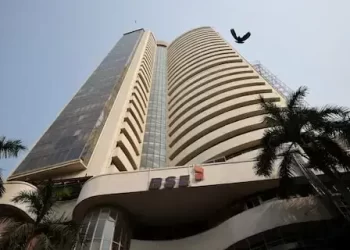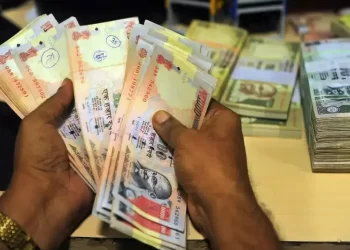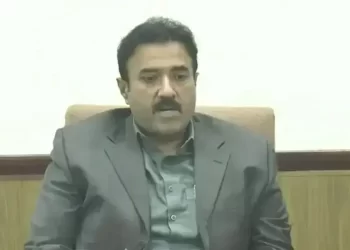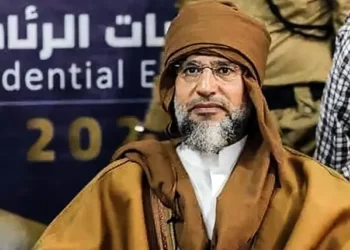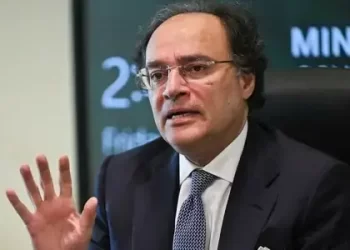Supporters denounce arrests of lawyers, journalists as ‘wave of repression’ shows no sign of slowing down.
Tunis, Tunisia – Hundreds of black-clad lawyers filled the narrow Boulevard Ben Bnet outside Tunis’s bar association headquarters as they protested the arrests of two of their own.
Thursday was the second day of strikes in a dark week for Tunisian civil society as security forces swept up journalists and activists in what rights groups have characterised as a further crackdown on dissent.
“The regime’s machinery is operating very efficiently, meaning it devours anyone who has a critical perspective on the situation, … lawyers, journalists, bloggers, citizens or associations,” Romdhane Ben Amor of the Ligue Tunisienne pour la defense des droits de l’homme (LTDH, the Tunisian League for the Defence of Human Rights) said.
Ben Amor said President Kais Saied, like populists the world over, sides with those he sees as the people against the elites, encouraging them to blame others for their difficulties.
“So, of course, Kais Saied from now until the elections [scheduled for November] has a long list of individuals, associations, parties and journalists whom he will gradually criminalise to always maintain the sympathy of his electoral base,” Ben Amor said.
Saied, a former law professor elected in 2019, swept to power on widespread Tunisian anger and frustration over politics regarded as corrupt and self-serving.
After dismissing parliament in July 2021, Saied began rebuilding Tunisia according to his design, ignoring the acute, unresolved financial crisis that led to its 2011 revolution. He blamed “international plots against Tunisia”, rewrote the constitution and purged his critics in politics and the media.
He oversaw the arrest of leaders of the self-styled Muslim Democratic Ennahdha party, including former parliamentary Speaker Rached Ghannouchi as well as the party’s archrival, Abir Moussi.
“The wave of repression we witnessed this week clearly marks a new threshold for Saied and Tunisia,” Benghazi said as the noise of the crowd almost drowned him out.
“Those parts of civil society that avoided the repression that followed the [July 2021 events] now seem to be the primary targets of the authorities. Arrests, raids and investigations on NGOs working on migrant rights have all multiplied over the last few weeks.”
The outlook for Tunisia’s civil society, whose leads were awarded the Nobel Peace Prize in 2015, is grim, he said.
“Our fear is this crackdown will broaden to other groups, especially those working on democracy and rule of law and who are critical of the direction Tunisia is taking. The fact the discussions over the decree governing associations have resumed as civil society is under attack is no coincidence,” he said.
Benghazi referred to a law that parliament – now in a vastly weakened state – has long been discussing. If passed, it would force civil society groups to seek permission from authorities to operate, Amnesty International said in October.
The purge
Lawyer Mehdi Zagrouba was taken on Monday after an initial national strike by lawyers to protest Dahmani’s arrest. Witnesses said police again violently entered the bar association, breaking windows and doors before detaining Zagrouba.
Zagrouba had been with Dahmani during her court appearance that day and active in the strike. The Ministry of the Interior charged him with verbally and physically attacking the police, which his defence denied.
Video of Zagrouba’s late-night arrest shows him being taken on a stretcher from the bar association, and sources told media that a photographer covering the event had his camera seized.
On Wednesday, Zagrouba’s lawyers told a court he had been tortured before he collapsed and was taken to hospital, forcing the hearing’s postponement.
According to the Tunisian bar association, Zagrouba had “traces of physical violence on different parts of his body, which were examined by the investigating judge, confirming that he was tortured during his detention”.
“The Tunisian authorities have managed to subordinate the judiciary … and to effectively turn courts and the prosecutor’s office into tools of oppression,” Said Benarbia, director of the Middle East-North Africa programme at the International Commission of Jurists, told media.
“By targeting independent lawyers, the authorities are dismantling the remaining pillar on which the fair administration of justice stands, …. part of a wider campaign to intimidate and silence the legal profession, one of the last lines of defence against the government’s crackdown,” he added.
In a statement to local radio, the Interior Ministry denied that Zagrouba had been assaulted at any point and threatened to prosecute anyone sharing false information.
On the same evening as Dahmani’s arrest, TV and radio presenter Borhen Bsaies and political commentator Mourad Zeghidi were also arrested under an “anti-fake news” cybercrime law. Bsaies’s lawyer said no proper evidence had been offered to show his client had violated the law.




